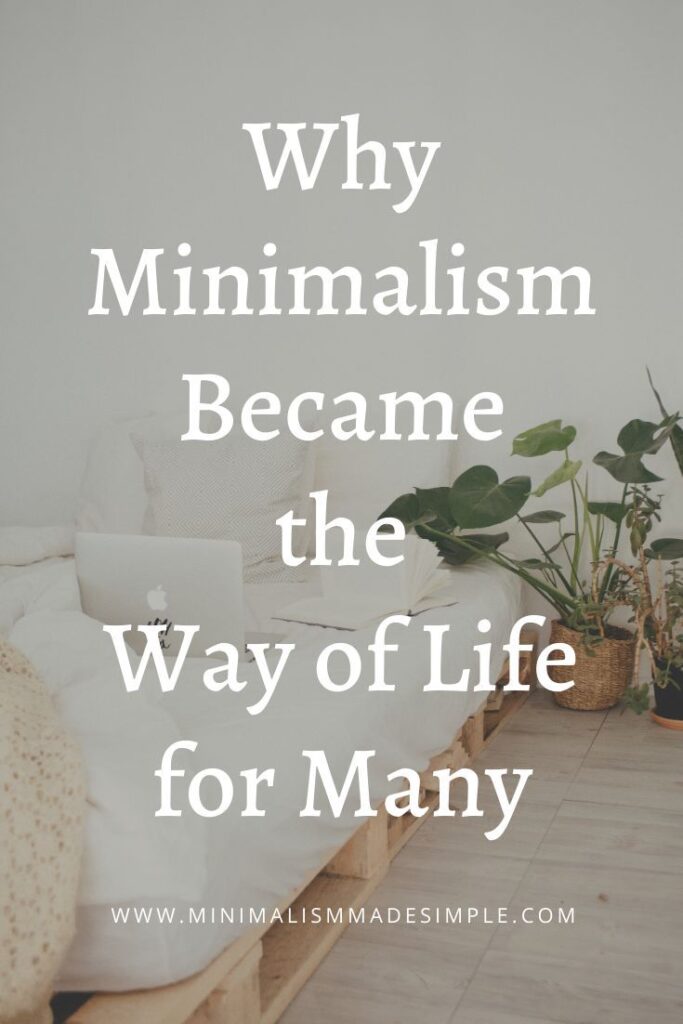The Minimalist Movement: How Simplifying Life Is Becoming A Global Trend is a phenomenon that has captured the attention of individuals worldwide. As modern life becomes increasingly cluttered with material possessions and overwhelming commitments, many are turning to minimalism as a solution. This movement emphasizes the importance of living with less, focusing on what truly matters, and finding joy in simplicity. By adopting a minimalist lifestyle, people are discovering not only a sense of peace but also a renewed appreciation for their surroundings and relationships.
In this article, we will delve deeper into the principles of minimalism and explore its growing popularity across various cultures. You will learn about the psychological and emotional benefits of simplifying your life, including reduced stress and increased clarity. Additionally, we will provide practical tips on how to start your own minimalist journey, from decluttering your home to prioritizing experiences over possessions. Whether you are a seasoned minimalist or just curious about the movement, there is something valuable for everyone.
Join us as we uncover the transformative power of minimalism and how it can lead to a more fulfilling and intentional life. By the end of this article, you will be inspired to take actionable steps towards embracing a simpler lifestyle. So, read on to discover how the Minimalist Movement can change your perspective and enhance your well-being.
The minimalist movement has gained significant traction in recent years, as individuals around the globe seek to simplify their lives. This trend is not just about decluttering physical spaces; it encompasses a broader philosophy of living intentionally and prioritizing what truly matters. Below are key subtopics that delve into various aspects of this growing movement.
The Philosophy Behind Minimalism
Minimalism is rooted in the idea that less is more. It encourages individuals to focus on quality over quantity, leading to a more fulfilling life. This philosophy promotes mindfulness, urging people to evaluate their possessions and commitments critically. By embracing minimalism, individuals can cultivate a deeper appreciation for the things they choose to keep, fostering a sense of gratitude and contentment.
Moreover, minimalism challenges societal norms that equate success with material wealth. Instead, it advocates for a lifestyle that prioritizes experiences, relationships, and personal growth. This shift in perspective can lead to greater happiness and reduced stress, as individuals learn to let go of the unnecessary burdens that often accompany consumerism.
The Environmental Impact of Minimalism
As the world grapples with environmental challenges, minimalism offers a sustainable alternative to consumer culture. By reducing consumption and waste, minimalists contribute to a healthier planet. This lifestyle encourages individuals to make conscious choices about their purchases, opting for sustainable and ethically produced items.
Additionally, minimalism promotes the idea of reusing and repurposing items, which can significantly reduce landfill waste. By embracing a minimalist lifestyle, individuals can play a crucial role in combating climate change and promoting environmental stewardship, making it a vital aspect of the movement.
Minimalism in the Digital Age
In today’s digital world, minimalism extends beyond physical possessions to include digital clutter. Many individuals find themselves overwhelmed by the constant influx of information and notifications. Digital minimalism encourages people to streamline their online presence, focusing on meaningful interactions and reducing distractions.
This approach can lead to improved mental well-being, as individuals reclaim their time and attention. By curating their digital environments, minimalists can foster deeper connections and enhance their productivity, making digital minimalism an essential component of the overall movement.
Minimalism and Mental Health
Research has shown that clutter can negatively impact mental health, leading to increased stress and anxiety. Minimalism offers a solution by promoting a clean and organized living space, which can create a sense of calm and clarity. By simplifying their surroundings, individuals can experience improved focus and reduced overwhelm.
Furthermore, the minimalist lifestyle encourages self-reflection and intentional living, which can contribute to better mental health. By prioritizing what truly matters, individuals can cultivate a sense of purpose and fulfillment, leading to a more balanced and satisfying life.
The Role of Minimalism in Financial Freedom
Minimalism can significantly impact an individual’s financial situation. By reducing unnecessary expenses and focusing on essential needs, minimalists can save money and achieve financial freedom. This approach encourages individuals to evaluate their spending habits and prioritize investments that align with their values.
Moreover, minimalism promotes the idea of living within one’s means, which can lead to reduced debt and increased savings. As individuals embrace a simpler lifestyle, they often find that they can achieve their financial goals more easily, making minimalism a powerful tool for financial empowerment.
Minimalism in Home Design
Minimalist home design emphasizes simplicity, functionality, and a clean aesthetic. This design philosophy encourages the use of open spaces, neutral colors, and minimal decor, creating a serene environment. By focusing on essential elements, minimalist design promotes a sense of tranquility and harmony within the home.
Additionally, minimalist home design often incorporates sustainable materials and energy-efficient solutions, aligning with the broader principles of the minimalist movement. This approach not only enhances the living experience but also contributes to a more sustainable future.
The Global Spread of Minimalism
The minimalist movement has transcended cultural boundaries, gaining popularity in various parts of the world. From Japan’s “Ikigai” philosophy to the Scandinavian concept of “Lagom,” different cultures have embraced the principles of minimalism in unique ways. This global trend reflects a collective desire for simplicity and intentional living.
As more individuals share their minimalist journeys through social media and online platforms, the movement continues to grow. This interconnectedness fosters a sense of community among minimalists, encouraging the exchange of ideas and experiences that enrich the movement as a whole.
Practical Tips for Embracing Minimalism
For those looking to adopt a minimalist lifestyle, starting small is key. Begin by decluttering one area of your home, assessing each item for its value and purpose. Consider implementing a “one in, one out” rule to maintain balance in your possessions.
Additionally, practice mindfulness in your purchasing decisions. Before acquiring new items, ask yourself if they align with your values and contribute to your overall well-being. By taking these practical steps, individuals can gradually embrace minimalism and experience its transformative benefits.
| Aspect | Description |
|---|---|
| Definition | The Minimalist Movement advocates for a lifestyle that emphasizes simplicity, focusing on the essentials and eliminating excess possessions and distractions. |
| Historical Context | Minimalism has roots in various art movements and philosophies, gaining popularity in the 20th century as a reaction against consumerism and materialism. |
| Core Principles | Key principles include decluttering, intentional living, and prioritizing experiences over material goods. |
| Benefits | Benefits of minimalism include reduced stress, increased focus, financial savings, and a greater appreciation for what truly matters in life. |
| Global Impact | The movement has gained traction worldwide, influencing various aspects of culture, including design, architecture, and lifestyle choices. |
| Digital Minimalism | In the digital age, minimalism extends to technology use, advocating for reduced screen time and mindful consumption of digital content. |
| Challenges | Challenges include societal pressures to accumulate wealth and possessions, as well as the difficulty of changing long-standing habits. |
| Conclusion | The Minimalist Movement continues to inspire individuals to rethink their relationship with possessions and prioritize a more meaningful, intentional life. |



